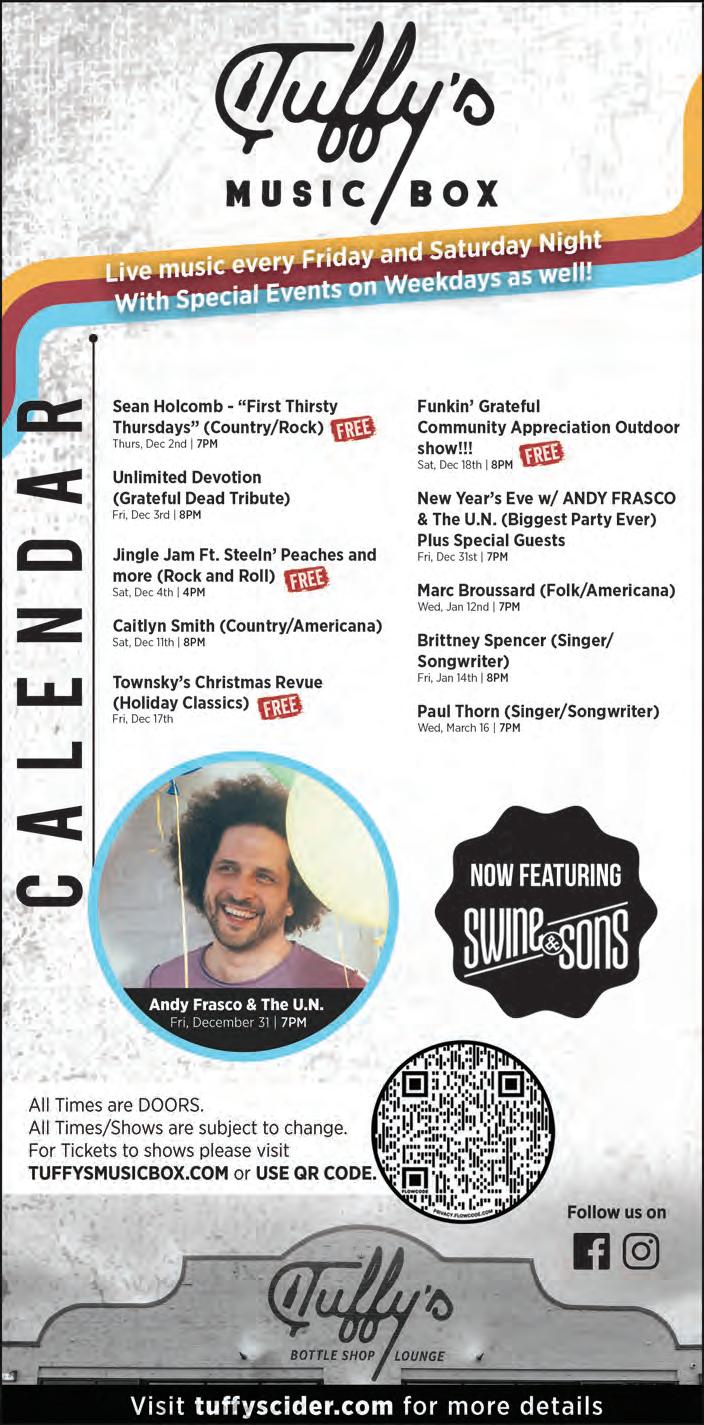
7 minute read
News: Rep. Anna Eskamani wants to wrest back control of tourist tax funds
NEWS PENNY PINCHERS
Rep. Anna Eskamani wants to wrest back control of tourist tax funds and use them to fix some of Orlando’s lingering problems
Advertisement
BY KEN STOREY
As airports braced for a pre-pandemic-style Thanksgiving week, Florida’s theme parks seemed to have shaken off any pandemic blues. Orlando-based SeaWorld Entertainment saw its second-highest net income for Q3 in the company’s history in 2021. Walt Disney World saw double-digit growth in attendance since this summer, and globally Disney Parks brought in $5.4 billion in the past three months, double the amount in the same quarter last year.
Still, signs of recovery have yet to trickle down to the workers that are the backbone of the tourism industry and Florida’s economy. This summer, the Brookings Institution found the pandemic and related recession was felt the most by low-wage workers. Among those low-wage workers, the hardest hit sector was leisure and hospitality.
While the pandemic intensified the problem, even before COVID-19, Central Florida was barreling down a path with increasingly dire realities for large swaths of the population. Tens of thousands across the region remain destitute. But now, new conversations are occurring on how to address the problem. The generation-defining event that has dominated the past 20 months is spurring innovative solutions to issues overlooked for decades. Locally, that has meant questioning long-standing conventions on how to address the income insecurity faced by those working in the state’s largest industry.
The Tourist Development Tax, or TDT — money raised via a tax on overnight accommodations — has helped finance major projects, including the ever-growing Orange County Convention Center and the Dr. Phillips Center for the Performing Arts. But in 2018, as Brevard County were considering spending locally raised tourist tax on a wastewater treatment facility designed to help improve the quality of the Indian River Lagoon, state politicians, at the behest of the Central Florida Hotel & Lodging Association, added a provision regarding exactly how communities can use their locally raised bed tax. The role of the CFHLA in getting the provision added was later brought to light when Orange County sought to use TDT funds for road improvements in the tourism district.
Communities can use TDT money for a wide variety of tourism-related projects, including on transit, workforce housing, and environmental remediation, but only if they spend 40 percent of their funds on tourism promotions and advertising. Otherwise, the projects funded through the tax are limited to a smaller pool of options. That threshold means millions of dollars must be spent on marketing efforts just to ensure other improvements that would benefit tourists can also be made.
In a city with seven of the most visited theme parks in the world, the second-largest convention center in the nation and the state’s busiest airport, there seems to be little need to expand marketing outreach. At least, that’s the argument being made by some in an effort to give communities more say in how locally raised taxes are spent.
State Rep. Anna Eskamani (D-Orlando) wants to remove this requirement. She has filed HB 6075 to lift the restriction and give communities more control over how funds raised in their towns are spent. She hopes to repeal the 40 percent threshold requirement, giving communities more choices for projects they want to focus on. She points to transit improvements in the International Drive tourism district as an example of the type of project that currently can’t be funded by the tourism development tax, due to the county not meeting the marketing threshold. The long-planned pedestrian bridge over Sand Lake Road is a prime example of a clearly tourism-related project that cannot be funded through the bed tax.
Speaking with Orlando Weekly, Eskamani expressed frustration that the bridge cannot be financed using the TDT. “That’s more about tourists than residents, but, right now ... we cannot spend the bed tax money on that project. That makes no sense to me,” she says. The Kirkman Road extension to Universal’s upcoming Epic Universe theme park is another project that local leaders had to fund through other means, due to the marketing restriction.
It was this project that caused Eskamani to first become interested in the constraint, after local leaders stated they would’ve preferred to have used the TDT funds to finance a road leading to a theme park.
Using tourism-raised funds on a broader range of tourism-related projects also frees up funds for other parts of the budget. That’s one reason the idea is embraced by the prosmart growth group Orlando YIMBY.
Austin Valle, one of the co-founders of the Orlando YIMBY group, explained why they’re supporting HB 6075. “Tourism [taxes] are borne by folks who are here visiting. And so, using those dollars is less of a burden on the rest of the county,” Valle says. “Basically, you have two options if you want to spend more money. You can do it by raising property taxes on everybody in the county, or you can use already existing money that’s being levied on people who are coming from out of town.”
Eskamani says sales tax previously helped fund some local projects, but that hasn’t been the case more recently. “At a local level, we don’t see all that sales tax revenue [that’s raised here]. At the end of the day, most sales tax revenue goes to the State of Florida, and it might get reallocated towards our county, but recently it definitely hasn’t,” she says. “You know, the Governor has slashed affordable housing dollars, and he has vetoed several Central Florida projects.”
Eskamani, an outspoken Democrat, may not be the typical voice for small government, but on the TDT issue, she says local communities should decide what to do with funds raised in those communities. “All [HB 6075] does is take away that cap and lets local governments decide. If the local government still wants to spend half of their TDT on advertising, they can. We’re not saying you can’t, but we are restoring local control.”
For more than half a century, Florida has operated under a Home Rule Provision added to the state constitution giving governing power to communities. But state politicians have increasingly sought to limit local decision-making. The TDT marketing provision is one of several examples on an ever-growing list of ways state Republicans have ensured Tallahassee can overrule decisions by municipalities.
Valle thinks community leaders and residents understand non-marketing-related expenditures are essential to ensure the region remains a desirable place to live and visit: “I think our citizens and our business community … know that we’re having to compete with regions who are doing things like transit and housing affordability better than we are. We’re needing to compete with St. Petersburg and Miami, and now Atlanta and Nashville and Raleigh. These cities are making decisions on transit, and in some cases on housing, better than we are. Our leadership, residents, and business community are all looking at what these other cities are doing. They understand to remain competitive, if we don’t improve these things, we will fall behind.”
While Eskamani’s bill has become a major conversation topic around Orlando, it’s up against one of the most powerful lobbying interests in the state, while also having to pass in a Legislature where Eskamani and her Democratic peers are the minority. The CFHLA has so far remained steadfast in supporting the marketing requirement. Their CEO told the Orlando Business Journal Nov. 4 that the group “strongly advocates for preserving the integrity of this ‘bed tax’ so that it is utilized for tourism-promotion purposes only.”
Eskamani points out there’s already plenty of advertising focused on attracting visitors to the state. “Visit Florida is already spending money on advertising. The private companies are spending money on advertising. We’re not saying part of TDT can’t go to advertising; we’re saying that there shouldn’t be an arbitrary tap of requirements for advertising.”
She’s cautious when speaking of where the money from TDT collections should be used but notes that taking the burden off financing at least some projects could shift funds to other needs. Restrictions on the TDT funds to be used on tourism-related projects remain in place even with HB 6075. But it could fund more projects like the pedestrian improvements along International Drive. Eskamani frames the repeal as a way to meet local needs while not overburdening already struggling workers: “We need to do better by our people. We need to invest in our people in Central Florida and leverage whatever resources we have to do so, and this is a solution that doesn’t require any new fees or fines, no new taxes.”
By addressing transit, workforce housing or other needs faced by local workers, Valle believes the hospitality industry itself would be improved. “I just think it’s so narrow-minded and myopic to think about the promotion of tourism, just meaning billboards, TV commercials and trips overseas to go talk to tourism bureaus,” he says. “If you talk to any hotelier in the world, they’ll tell you that the best way to advertise is to take the guest who’s already in your hotel, give them a great experience, convince them to come back, and share that experience with others. I do so genuinely believe that the best way to promote tourism is to give our guests an incredible experience. That’s going to be made all the more possible if our workers in the industry are happy and healthy and safe.”
news@orlandoweekly.com











